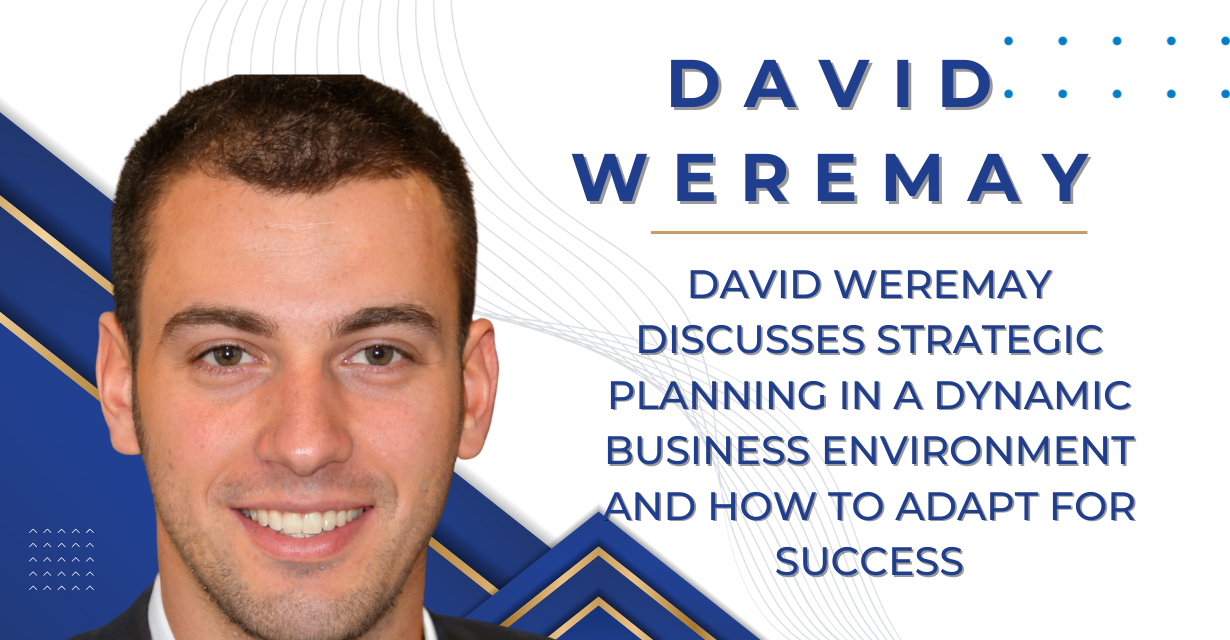David Weremay, a 45-year-old business consultant with a rich 20-year history in the industry, is the President of “David Weremay Consulting,” headquartered in Chicago, Illinois. After graduating summa cum laude with a 3.9 GPA in Business Administration from a leading university, David’s career began with several stints at reputable consulting firms. His academic prowess laid a strong foundation for his professional journey, during which he not only refined his strategic acumen but also forged enduring connections within the business community.
In 2010, driven by a vision for tailored business solutions, David ventured into entrepreneurship, founding his consulting firm. With a focus on practical strategies, his company caters to privately owned businesses spanning a revenue range from $2 million to $100 million annually. Based in the bustling city of Chicago, David’s consulting firm has become a trusted advisor for companies navigating the intricacies of the business landscape. His approach is marked by hands-on involvement, providing tangible and effective solutions to diverse clientele.
While Chicago serves as the professional hub for David, he calls Springfield, Illinois, home. Beyond his professional achievements, David is known for actively engaging in community projects, reflecting a commitment to the local community’s well-being. David Weremay’s career is a testament to a seasoned consultant who, through years of experience and a pragmatic approach, continues to make a substantial impact in the business world. His journey from corporate roles to founding a successful consulting firm embodies resilience, expertise, and a commitment to fostering success for businesses across the spectrum.
Strategic Planning in a Dynamic Business Environment: Adapting for Success
The Importance of Strategic Planning
Strategic planning is vital for any business aiming for sustained success. It involves setting long-term goals and determining the best strategies to achieve them. This process is crucial as it provides a clear direction and outlines measurable objectives that guide day-to-day operations. Strategic planning helps businesses anticipate potential challenges and respond proactively, not reactively, maintaining a competitive edge. Additionally, effective strategic planning fosters alignment within the organization, ensuring that all departments and employees are working toward the same goals, thereby enhancing operational efficiency and focus.
Adapting Strategies in Constant Change
In today’s fast-paced and ever-evolving business environment, the ability to adapt strategies in response to change is more critical than ever. Technological advancements, shifting market demands, and global economic trends can swiftly render a once-successful strategy obsolete. Businesses must therefore remain agile, continuously monitoring their external environment and internal performance to make informed decisions that align with their long-term objectives. Building an adaptive strategy involves regular strategic reviews and the willingness to pivot or make tactical adjustments as market conditions change. This agility enables businesses to leverage new opportunities and mitigate risks as they arise.
Embracing Technological Advancements
To adapt successfully, companies must embrace technological advancements that can significantly enhance efficiency and open up new opportunities. For instance, data analytics can provide deep insights into customer behavior, market trends, and operational efficiency, enabling businesses to make data-driven decisions that support their strategic objectives. Integrating advanced technologies like AI and machine learning can further refine these insights and automate complex processes, thereby increasing accuracy and speed in decision-making. This technology-driven approach not only supports existing strategies but also enables the discovery of innovative ways to meet business objectives.
Cultivating a Flexible Organizational Culture
Another critical aspect is cultivating a flexible organizational culture that can quickly respond to changes. This involves training employees to handle various tasks, encouraging innovation, and fostering a culture of continuous improvement. When employees are prepared and motivated to adapt to new challenges, the organization as a whole becomes more resilient. Encouraging a mindset of flexibility and resilience within the workforce is essential for cultivating an environment where change is viewed as an opportunity for growth and innovation rather than a threat.
Continuous Learning and Development
Continuous learning and development are also vital in maintaining a competitive edge. By investing in ongoing training and development, companies ensure that their staff remains on the cutting edge of industry developments, which is crucial for the effective implementation of strategic plans. Furthermore, fostering a culture that values continual growth and adaptation helps organizations attract and retain top talent who are eager to contribute to a dynamic and progressive workplace. This investment in human capital is critical for maintaining innovation and agility in a rapidly changing business environment.
Strategic planning is not just about setting goals and developing strategies to achieve them but also about being prepared to adjust those strategies as the business environment changes. David Weremay’s success with his consulting firm highlights the importance of adaptability and strategic foresight in today’s business landscape. By remaining agile and proactive, businesses can not only survive but thrive, even in the most dynamic of environments, securing a long-term competitive advantage.



